In this preliminary report, we make the case for 2SLGBTQ+ and allied organizations, policymakers, and funders to invest in building resilience and advancing justice for 2SLGBTQ+ communities in the face of climate change and other future shocks and stresses. We hope this framing report can help spur conversations, offer inspiration, and break down silos across movements and sectors. We outline what we’ve learned so far about how climate change—from extreme weather to increased risk of future pandemics—disproportionately impacts 2SLGBTQ+ communities, and some ways 2SLGBTQ+ and other marginalized communities are working to build community resilience and advance justice. The 519 offers this report as a starting point for our own work and for communities across Canada and beyond.
Exploring Approaches to 2SLGBTQ+ Resilience to Climate Change and Other Shocks and Stresses
Executive Summary
Exploring Approaches to 2SLGBTQ+ Resilience to Climate Change and Other Shocks and Stresses
Today, Canada and the world—and especially 2SLGBTQ+ and other marginalized communities—face a growing, generational climate emergency. Climate change is a force-multiplier for long-standing inequalities. Without bold action across society, cascading climate shocks and stresses will threaten hard-won progress and push our communities further to the margins. This report is a call for 2SLGBTQ+ and other marginalized communities to build community resilience and demand justice in a changing world. It is based on preliminary conversations with local partners, peers, and experts across North America, and preliminary research on climate impacts and resilience work happening around the world.
We provisionally define “resilience” as building strong, well-resourced, and just communities that can thrive amidst rapid change. The greatest risks in a changing climate come not from extreme weather but from isolation, disempowerment, and the choices of institutions and policymakers to maintain deep inequalities that make people’s lives more and more precarious. Marginalized people have long built joyful communities and networks of care amid crises, while insisting no one be left to fend for themselves. Amid climate, pandemic, and other shocks and stresses, that work is more vital than ever.
Climate change is driving extreme heat, wildfires, smoke, rain, storms, floods, and other impacts across Canada. This increasingly disrupts our daily lives and threatens our health, homes, safety, well-being. Wherever we live, 2SLGBTQ+ face increased risks of illness, injury, trauma, economic loss, and displacement from climate, pandemic, and other shocks and stresses. These risks are rooted in existing inequalities: higher rates of chronic health conditions, isolation, being un- or under-housed or living in institutional settings (like shelters and prisons), and numerous barriers caused by past and present discrimination and stigma. Other factors, such as relying on certain types of medications, or gender-affirming practices such as binding, can also present unique considerations during climate or disaster events.
Marginalized people worldwide have urged for years that the climate crisis threatens the enjoyment of fundamental human rights, both through unequal exposure to growing threats, and because its growing disruptions are so often seized on to scapegoat minorities and sow division.
Climate change may also contribute to more people than ever before relocating both within and to Canada. This increased mobility will present challenges and opportunities for 2SLGBTQ+ and Newcomer communities, and may call for new collaborations across geographies. Other climate impacts are harder to predict but will have major implications for 2SLGBTQ+ communities, including increased risks of infectious diseases, future pandemics, and disruptions to jobs, housing markets, transportation, and supply chains.
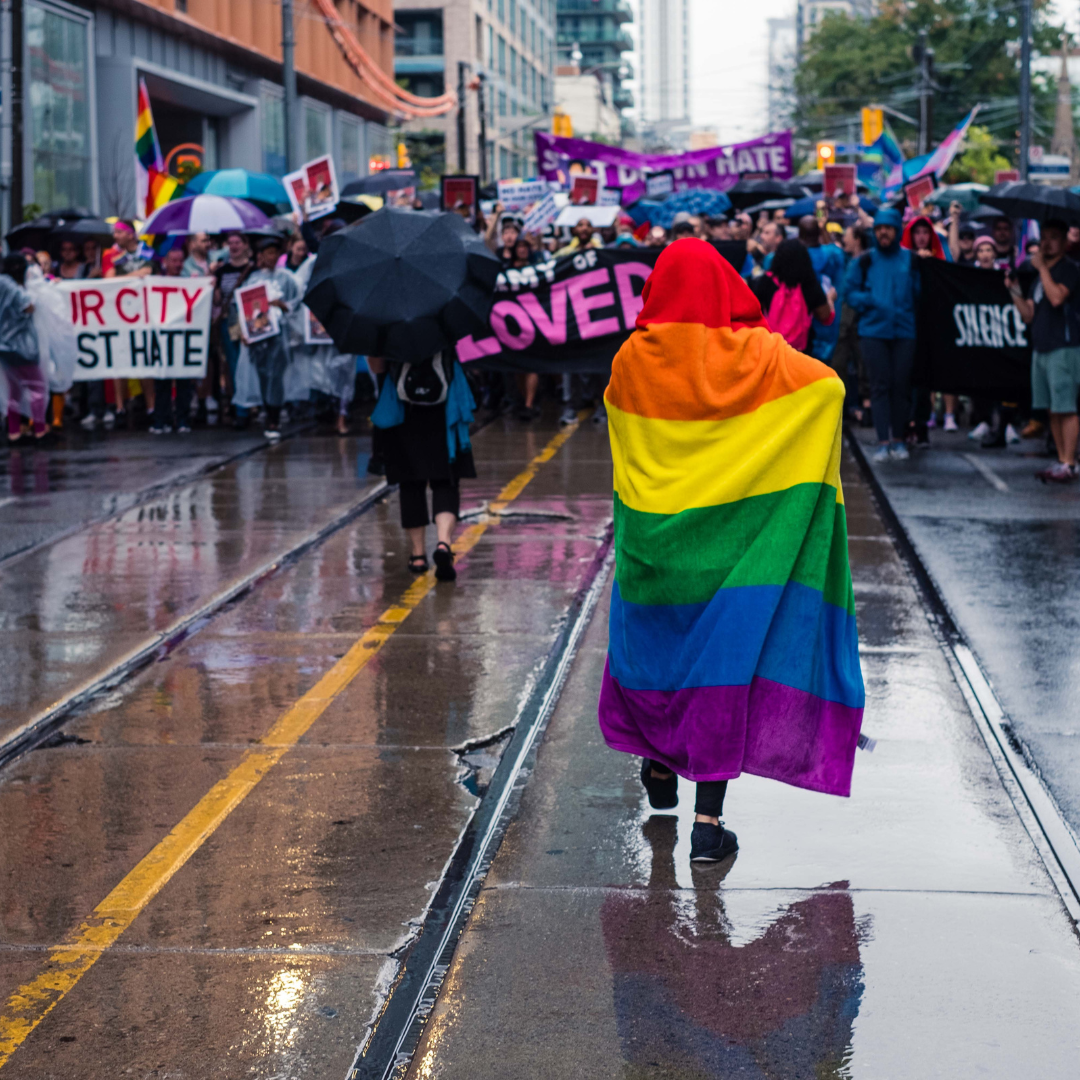
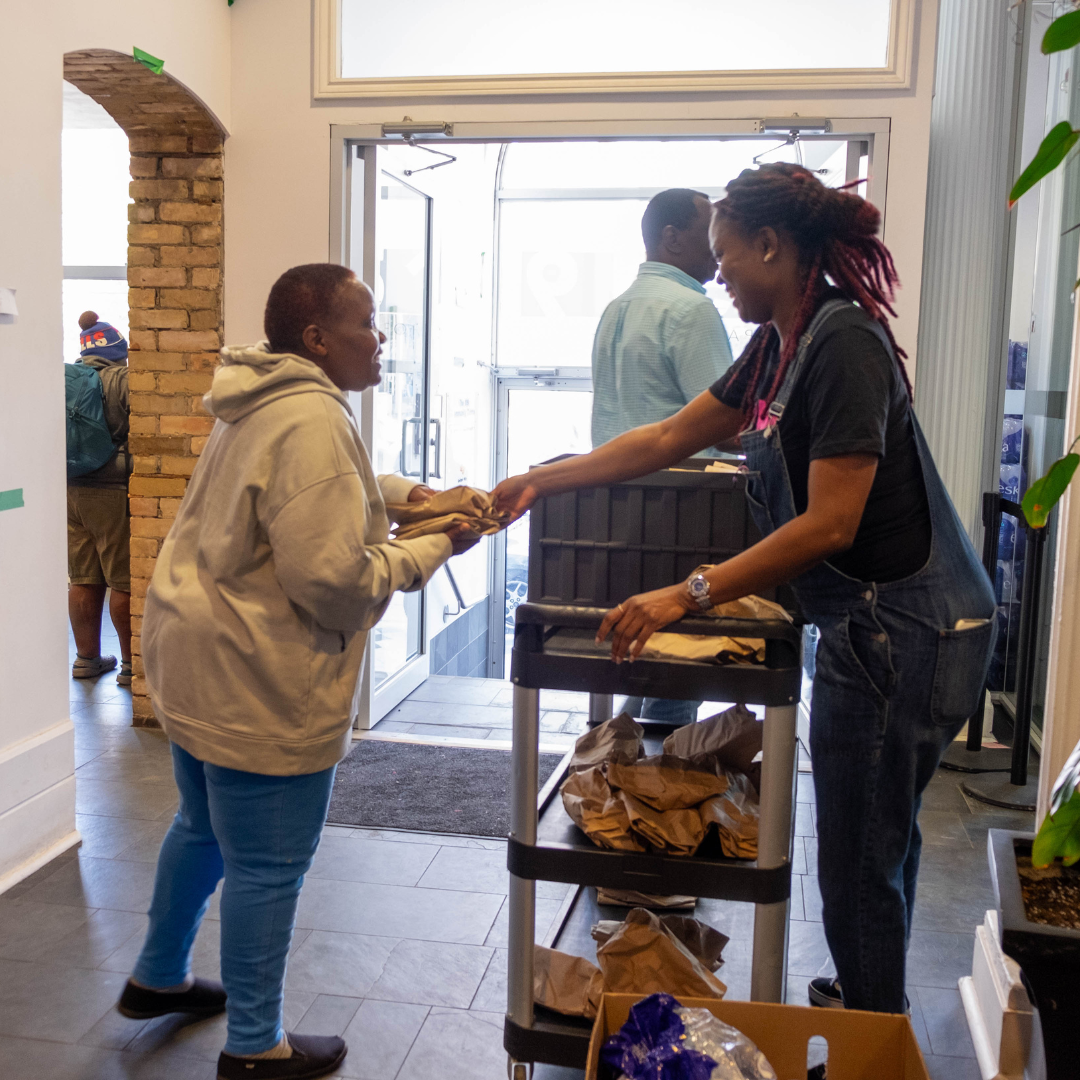
Emerging Themes for Building 2SLGBTQ+ Resilience
Though countless 2SLGBTQ+ individuals are playing crucial roles as climate activists, 2SLGBTQ+ communities have been largely invisible in climate, disaster, and resilience efforts. We have often relied on ad hoc efforts and informal networks to help each other in emergencies. This is changing as 2SLGBTQ+ and other marginalized community groups worldwide emerge as grassroots emergency managers, community planners, and resilience hubs. While 2SLGBTQ+ resilience efforts are still evolving, we identify a few key themes for communities and organizations to consider:
- Asset-Mapping and Collaboration. It’s always been critical for 2SLGBTQ+ organizations to collaborate with partners who have roots across our neighbourhoods, towns, and intersecting communities. Climate and resilience work is often place-based and hyper-local. 2SLGBTQ+ groups can start by understanding the local work already being led by marginalized communities, and building relationships (including with 2SLGBTQ+-identified leaders in these spaces). Through partnership, groups can map existing needs, resources, and risks, and explore joint resilience planning, advocacy, and resource-sharing.
- Community Knowledge and Leadership. Effective resilience work activates the knowledge, vitality, and leadership of 2SLGBTQ+, BIPOC, Newcomer, disabled, and other marginalized community members of all ages. Even communities where unprecedented shocks are still on the horizon can draw on their experiences from past shocks like COVID-19, and their visions of a resilient community. 2SLGBTQ+ groups can act as convenors, liaisons, and provide infrastructure for community-led initiatives, everyday activities, and emergency response.
- Advocating for Climate Justice and Community Investment. Climate, pandemic, and disaster events that fall hardest on 2SLGBTQ+ and other marginalized communities can’t be separated from the unequal systems that marginalize them. Only more just and equal communities can be truly resilient, and this requires intersectional advocacy for structural reforms and community investments. 2SLGBTQ+ organizations’ visions for resilience should include bold action to secure all people equitable access to shelter, food, health, and well-being, address anti-Black racism, and advance Indigenous reconciliation and climate justice.
- Cultivating Connected, Resilient Communities. Resilient communities are connected communities, built on the social infrastructure of neighbourhood gatherings, friend groups, chosen family, and grassroots networks. 2SLGBTQ+ organizations can help cultivate and sustain resilient communities in many ways, such as programs that support community resource- and skill-sharing, mutual aid, mentoring; food sovereignty; access to land, green and blue infrastructure, and eco-education; and devoting resources to serving as resilience hubs, connectors, and incubators.
- All-Hazards Community Preparedness. While emergency preparedness is only part of resilience, it’s critical to promote preparedness at a community (not just an individual) level, and in a comprehensive, flexible way that can help 2SLGBTQ+ people respond to a wide range of disruptive events. This can include reaching out to potentially isolated or more-exposed people at home and on the streets; serving as cooling or warming centres, meeting points, and relief hubs in emergencies; mobilizing volunteers and resources to bring food, supplies, mobile power, or other help to those in need; creating low-barrier emergency funds; and supporting neighbour-to-neighbour check-ins and mutual aid.
- Organizational Resilience. 2SLGBTQ+ groups need to assess and build their organizational resilience—from their facilities and finances to their staffing and procedures. This can include service continuity, staffing, staff support, communications, and other emergency plans; training on emergency roles and extreme-weather first-aid; and conducting tabletop scenario exercises. Organizations can assess and strengthen the resilience of their physical buildings and facilities so as to remain open through emergencies, and add infrastructure that helps protect surrounding communities. Strategic, program, financial, and development planning and collective bargaining processes can incorporate a resilience lens.
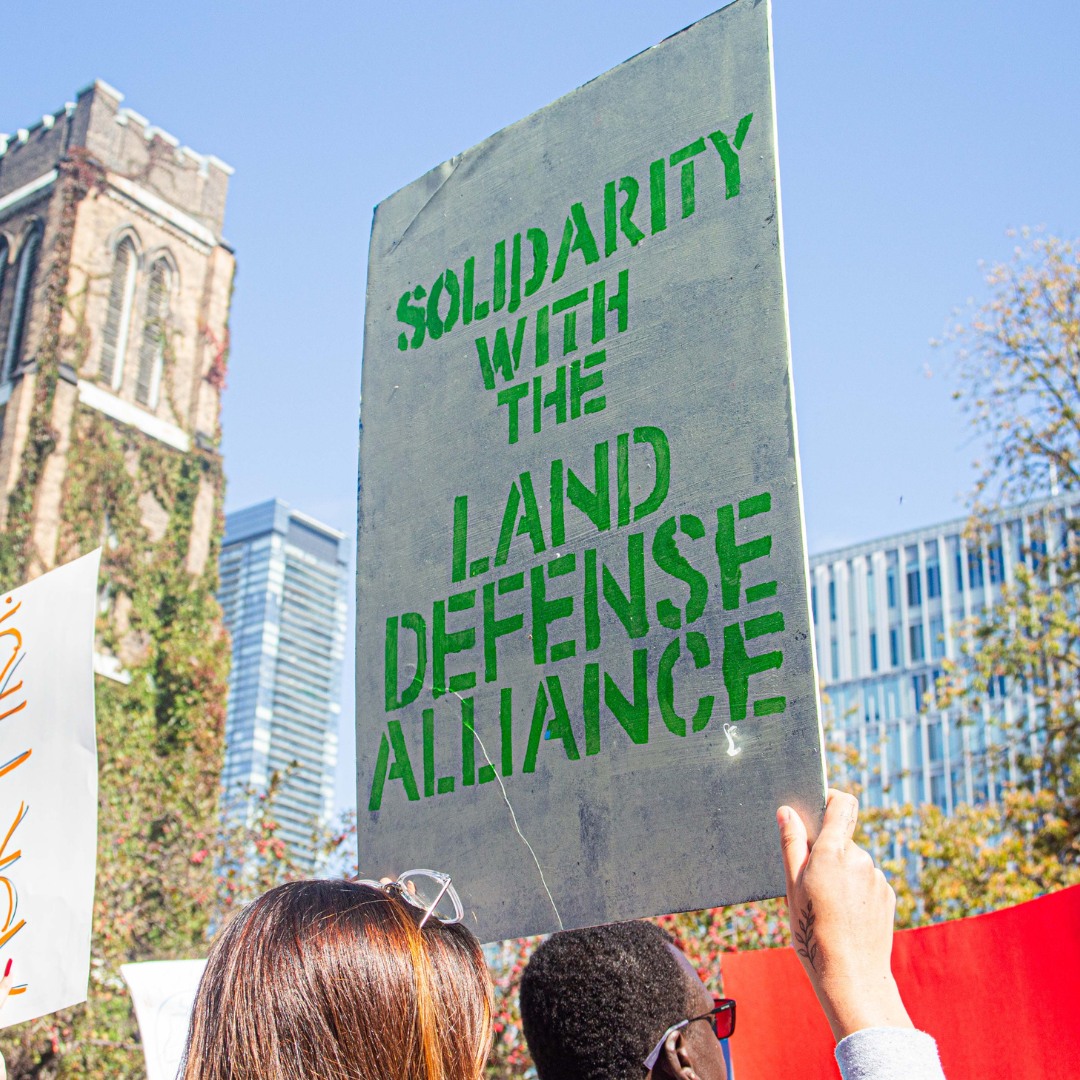
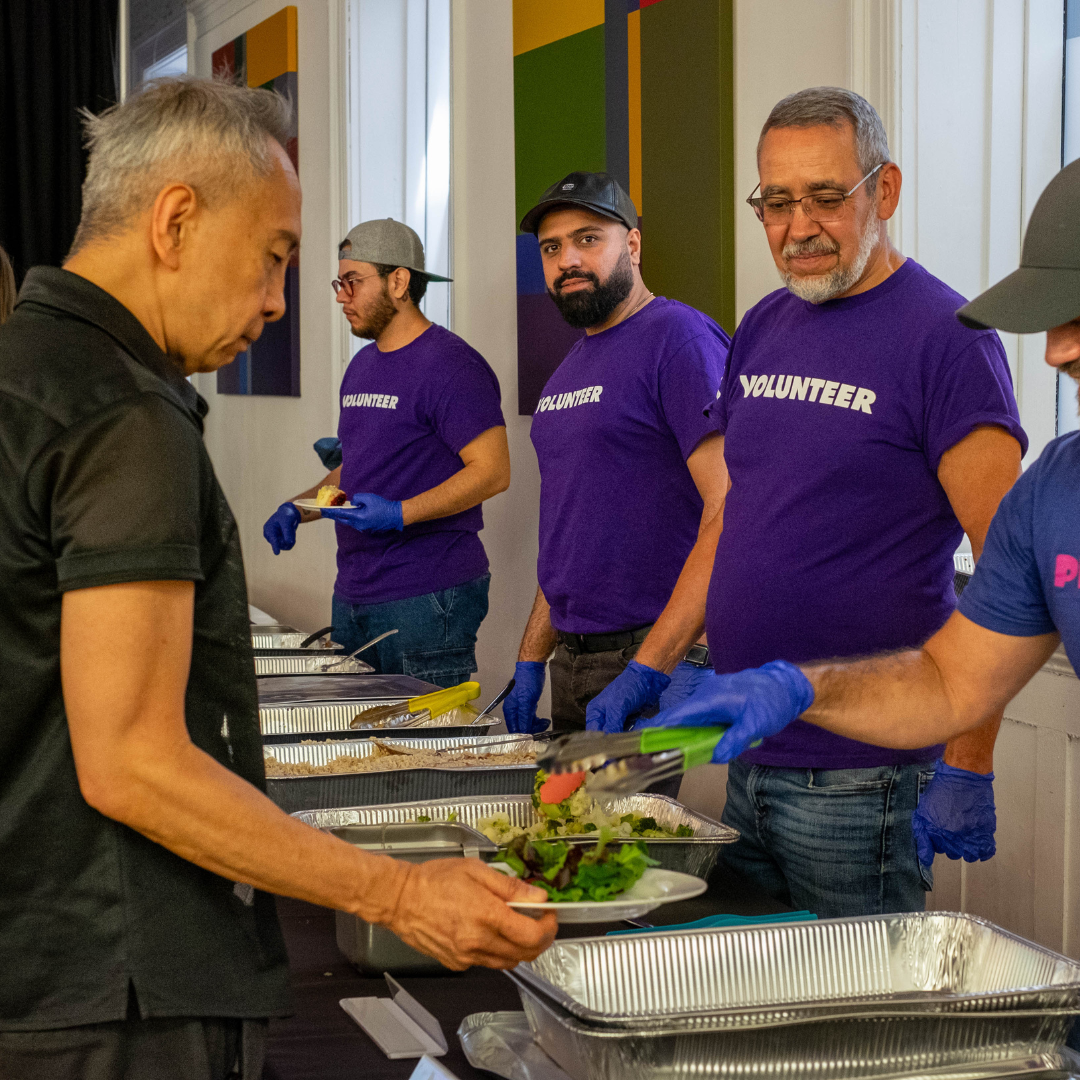
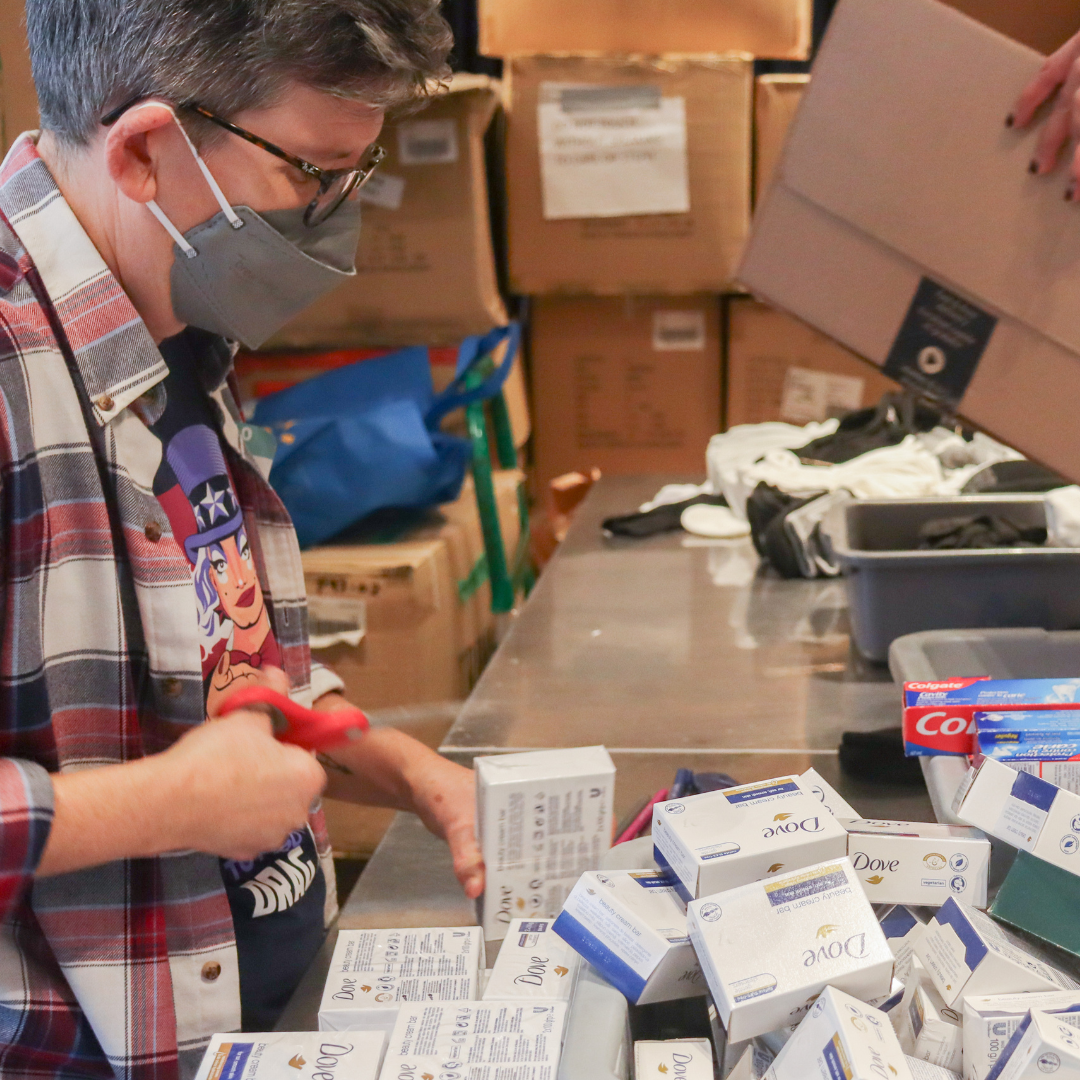
A Better World Is Possible
The 519 is just beginning this work, learning from partners and peers how to integrate a resilience lens in everything we do. This work calls for us to listen, support community leadership, forge new relationships, and redefine what we mean by “2SLGBTQ+ issues.” This is an essential extension of the work 2SLGBTQ+ people have always done to survive and thrive together. We have met pandemics, repression, and other crises with love, care, and demanding justice—and that is what a changing world demands today. As always, a better world is possible.



